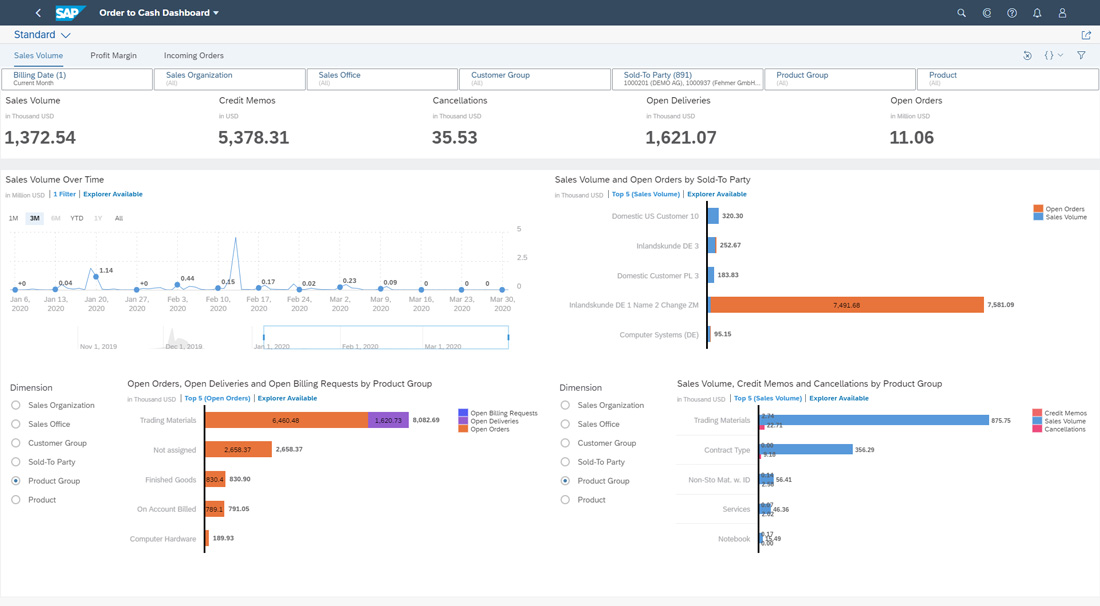What is ERP? (Enterprise Resource Planning)
ERP stands for enterprise resource planning. Enterprise resource planning (ERP) is a software system that organizations use to manage day-to-day business activities, supporting automation and processes in accounting & finance, human resources, manufacturing, supply chain, services, procurement, project management, risk management, compliance and more. A complete ERP suite also includes enterprise performance management, software that helps plan, budget, predict, and report on an organization’s financial results.
ERP systems tie together a multitude of business processes and enable the flow of data between them. By collecting an organization’s shared transactional data from multiple sources, ERP systems eliminate data duplication and provide data integrity with a single source of truth. Today, ERP systems are critical for managing thousands of businesses of all sizes and in all industries.

Features of Best ERP Solutions
Integration
The primary, and most significant, benefit of ERP is a central view of essential financial, operational and business data that can be shared across the organization in near-real-time.
Automation
ERP provides the ability to automate repeatable business tasks, such as payroll, order processing, invoicing, reporting and more. Automation minimizes the time spent on manual data entry, reduces errors and lets employees focus on more value-added tasks.
Data Analysis
Using data more effectively is a perennial priority for CFOs and business leaders. The power of data analysis is enabling employees to gather a wide variety of information and spin it into actionable insights on new business opportunities as well as ways to optimize current operations, reduce costs, spot fraud and better serve customers.
Reporting
Better reporting is almost as important to executives as more effective data usage. ERP reporting modules compile information about business operations into reports that empower stakeholders to make more informed decisions, enhance business processes and identify problem areas before the business suffers.
Tracking and Visibility
ERP platforms allow companies to track, surface and understand business metrix. They do this by facilitating companywide access to near-real-time data, breaking down information silos and offering reporting and analysis for every aspect of business operations.
Accounting
ERP accounting features deliver the ability to track, store and analyze financial data, such as accounts payable (AP), accounts receivable (AR), general ledger (GL), budgets and forecasting. Systems may perform more advanced tasks such as tax management, fixed assets management, revenue recognition and multi-currency reconciliation.
Financial Management
ERP systems assist finance teams with the management process by tracking, analyzing and reporting critical business data. In large, complex organizations, ERP systems are necessary tools for sound financial management.
Customer Relationship Management (CRM)
ERP systems with integrated CRM features bring customer relationship data into the mix, expanding the view of the business. All customer information—including contacts, order history, purchase orders and prospect status—is in a shared, easily accessible database.
Sales and Marketing
ERP systems with integrated CRM also benefit marketing and sales teams by making it easier for them to sell, upsell, generate quotes and purchase orders, forecast, manage commissions and track key details like profit margins and ratios.
Our Customers Say
Frequently Asked Questions
Enterprise Resource Planning software, or ERP, can be complex to understand. Here are 4 questions answered for you to help you get the most out of your ERP.
-
What Is an ERP System and Why Is It Used?
ERP is a type of software application used most often by medium and larger enterprises, and sometimes by smaller companies. ERP software focuses on integrating business processes into a single, streamlined database and user interface by offering modules for each of the core business areas: human resources, financials, inventory management, sales and customer relationship management, along with other business-critical functionalities. The main goal of ERP software is to integrate formerly separate databases and processes into a single source of truth, instead of these databases and processes functioning in silos.
-
What Are the Steps to Successful ERP Implementation?
Select the ERP solution which best matches your business goals and processes. Map the journey of your business interactions with the ERP system, including customizations. Create a clear implementation schedule and budget, including measurable goals and objectives. Identify a change management team, responsible for dealing with uncertainties, unexpected issues or resistance towards new business processes or IT systems. Create a team of stakeholders, including department heads and end-users, who will carry out various ERP implementation aspects, including providing or assisting with training. Clean and organize data to be imported from old systems into the new ERP database. Monitor and report on the implementation process to stakeholders throughout each step to avoid scope creep and the disruption of business productivity
-
What Problems Can ERP Solve?
Five main business issues can be solved by ERP software, namely communication challenges; repetitive manual tasks; customer data tracking; financial disorder and decision-making.
-
What Are Some Change Management Strategies for Successful ERP Implementation?
Adopting an appropriate ERP change management strategy reduces organizational resistance to change while extracting as much benefit as possible from the new system. Establishing a change management process reduces adverse incidents related to the transformation of IT and business processes. The goal of the change management process is to ensure that standardized methods and procedures are used for efficient and prompt handling of all changes, minimize the impact of change-related incidents service quality, and consequently improve the organisation's day-to-day operations.
Start Your Project with PBSS, the Leader in Business Software Solution Services.
Tell us about your business problem to start working on a solution with top software development experts.










